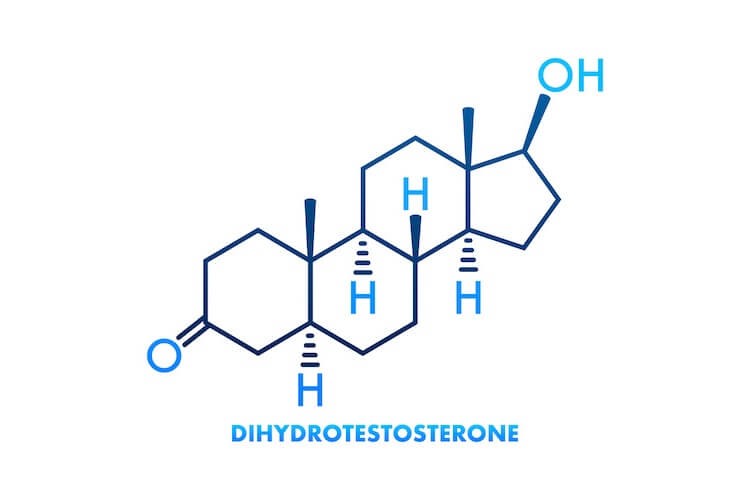Dht Demystified: Understanding The Hormone Behind Hair Loss"

Hair loss is a common concern for many people, and while genetics, stress, and various other factors play a role, one hormone often overlooked in this equation is Dihydrotestosterone (DHT). DHT is a natural hormone derived from testosterone, but its overproduction or sensitivity in certain individuals can lead to significant hair loss problems. Understanding DHT and its impact on hair follicles is crucial for anyone experiencing hair loss or looking to maintain healthy hair.
What is DHT? Dihydrotestosterone (DHT) is a hormone synthesized from testosterone by the enzyme 5-alpha-reductase. It's a potent androgen that plays a crucial role in the development of male characteristics during puberty. While DHT is vital for various bodily functions such as sexual development and muscle growth, its excessive production or sensitivity in certain tissues, including the scalp, can lead to adverse effects, particularly on hair follicles.
DHT and Hair Loss: In individuals with a genetic predisposition, hair follicles on the scalp can be sensitive to the effects of DHT. When DHT binds to receptors in the hair follicles, it can shrink them, leading to a shorter growth phase (anagen) and a lengthened resting phase (telogen). This process, known as miniaturization, results in progressively thinner and weaker hair strands until the follicle eventually stops producing hair altogether. This condition is commonly referred to as androgenetic alopecia, or male and female pattern baldness.
Factors Influencing DHT Levels: Several factors can influence DHT levels in the body, exacerbating hair loss issues. Genetics play a significant role, as individuals with a family history of androgenetic alopecia are more likely to inherit the genetic sensitivity to DHT. Hormonal imbalances, such as those experienced during puberty, pregnancy, or menopause, can also affect DHT production and contribute to hair loss. Additionally, lifestyle factors such as stress, poor diet, and certain medications can influence DHT levels and exacerbate hair loss problems.
Managing DHT-Induced Hair Loss: While it's impossible to completely eliminate DHT from the body, several strategies can help manage its effects on hair follicles:
Medications: FDA-approved medications such as finasteride and minoxidil work by blocking the conversion of testosterone to DHT or by stimulating hair follicles' growth phase, respectively. These medications can be effective in slowing down hair loss and promoting hair regrowth in some individuals.
Nutritional Supplements: Certain vitamins and minerals, such as biotin, zinc, and saw palmetto, have been shown to inhibit the production of DHT or support overall hair health. Incorporating these supplements into your diet may help mitigate hair loss caused by DHT sensitivity.
Lifestyle Changes: Adopting a healthy lifestyle, including regular exercise, stress management techniques, and a balanced diet rich in vitamins and minerals, can help regulate hormone levels and support hair follicle health.
Topical Treatments: In addition to minoxidil, various topical treatments containing natural DHT blockers, such as saw palmetto extract or pumpkin seed oil, may help reduce DHT's effects on the scalp when applied directly to the affected areas.

